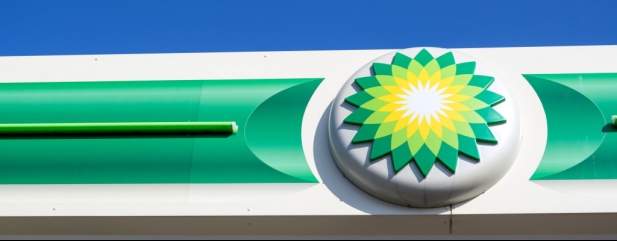Archived article
Please note that tax, investment, pension and ISA rules can change and the information and any views contained in this article may now be inaccurate.
BP joins group of FTSE 100 firms maintaining dividends

AJ Bell is an easy to use, award-winning platform Open an account
We've accounts to suit every investing need, and free guides and special offers to help you get the most from them.
You can get a few handy suggestions, or even get our experts to do the hard work for you – by picking one of our simple investment ideas.
All the resources you need to choose your shares, from market data to the latest investment news and analysis.
Funds offer an easier way to build your portfolio – we’ve got everything you need to choose the right one.
Starting to save for a pension, approaching retirement, or after an explainer on pension jargon? We can help.
Please note that tax, investment, pension and ISA rules can change and the information and any views contained in this article may now be inaccurate.

Oil and gas giant BP (BP.) has shown there are still some dividend payers on the FTSE 100 after committing to a $2bn payout despite reporting a $4.37bn loss for the first three months of 2020.
Increasing numbers of companies are cutting dividends as more and more look to preserve cash to survive the economic fallout from the coronavirus pandemic, but there still some like BP which have committed to keeping their shareholder payouts intact.
The BP payout, which came despite the massive loss and its debt levels rising above target to $51.4bn, follows the likes of other FTSE 100 names of late such as Unilever (ULVR), Croda International (CRDA) and Pearson (PSON) which have kept their dividends intact.
Chemicals company Croda said it has for many years operated a ‘prudent’ dividend distribution policy, which has allowed it to continue to pay its 50.5p per share final dividend, around £65m in total, for 2019.
Education publisher Pearson pointed to its ‘strong financial position’ with a ‘healthy’ balance sheet, low net debt and good liquidity as it increased its 2019 final dividend by 4% to 19.5p per share.
It’s not just large cap companies which are able to keep paying. Notably AIM-quoted self-storage play Lok’n Store (LOK:AIM) announced a 9% increase in its first half dividend to 4p.
With trading resilient for now, its cost of debt falling to 1.7% and the company ‘very conservatively financed’ CEO Andrew Jacobs told Shares he can see little reason to cut the dividend at the moment.
So far 37 FTSE 100 firms have announced cuts to their dividends, with only 16 currently committed to keeping theirs intact.
According to Canaccord Genuity Wealth Management’s senior equity analyst Simon McGarry, in a worst case scenario up to 50% of
the UK’s dividend income might disappear in the first half of 2020.
But he highlights five sectors where dividends look relatively resilient. These are mining, the tobacco sector which has seen resilient demand and boasts highly cash generative companies, food retailers like supermarkets, oil companies committed to their dividends like BP and Royal Dutch Shell (RDSB), and fund managers such as Schroders (SDR) and Standard Life Aberdeen (SLA) which have strong balance sheets and excess capital.
These articles are provided by Shares magazine which is published by AJ Bell Media, a part of AJ Bell. Shares is not written by AJ Bell.
Shares is provided for your general information and use and is not a personal recommendation to invest. It is not intended to be relied upon by you in making or not making any investment decisions. The investments referred to in these articles will not be suitable for all investors. If in doubt please seek appropriate independent financial advice.
Investors acting on the information in these articles do so at their own risk and AJ Bell Media and its staff do not accept liability for losses suffered by investors as a result of their investment decisions.
The value of your investments can go down as well as up and you may get back less than you originally invested. We don't offer advice, so it's important you understand the risks, if you're unsure please consult a suitably qualified financial adviser. Tax treatment depends on your individual circumstances and rules may change. Past performance is not a guide to future performance and some investments need to be held for the long term.
 magazine
magazine